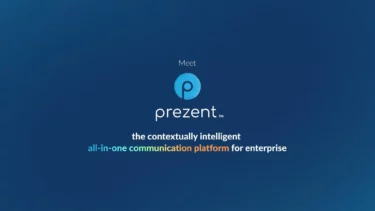In line with the rapid global adoption of generative artificial intelligence (genAI) in business since the launch of ChatGPT in late 2022, AI may be changing the way company leaders operate.
In June, Gallop published a report finding that frequent use of AI in the workplace has nearly doubled in the past two years, with 19% of respondents saying they use it frequently. While overall adoption numbers remain relatively low, the report does note that use of AI is more prevalent (33%) among business leaders.
A whole industry developing AI agents that help business leaders become more productive has emerged. For instance, UpFirst has created a virtual receptionist to help SMB owners with calls and leads; Prezent uses AI agents to design business presentations; DeepL beta launched a Computer Using Agent (CUA) that performs work for managers; GoodGist has an AI assistant you can email tasks to; alumni of some of the largest business consulting firms built NextStrat, an AI agent to help enterprises make strategic business decisions; while still others focus on niche industries such as Fracttal, with AI agents for maintenance management, and Allie AI’s AI Copilots for manufacturing.
As AI use in business becomes more ingrained, training of the next generation of business leaders is also adapting.
ISDI, Spain’s first digital business school, recently announced a partnership with Microsoft to launch a new Executive MBA in Business and Technology programme that incorporates real-world use of genAI into executive training.
Participants will acquire knowledge about artificial intelligence, but also work directly with it, turning it into a functional tool in their daily lives. Specifically, part of the program involves students designing, training, and implementing their own personalized AI agent using Microsoft Copilot.
“This collaboration reinforces our commitment to training well-rounded professionals capable of leading business transformation in a context shaped by AI,” Basola Vallés, General Manager of ISDI, said, according to Contxto.

A first of its kind in Spain, according to the university, the program structurally integrates business, technology, artificial intelligence, and human skills, including: practical application of personalized AI via Microsoft Copilot; using AI agents to improve positioning, personal branding, and employability; learning about real-world challenges that exist with the implementation of AI in the workplace.
The Spanish business school isn’t the first to incorporate AI into their business education programs, and they certainly won’t be the last. Programs available worldwide run the gamut from highly technical to more operational.
For instance, Arizona State University offers an artificial intelligence in business course that focuses on developing technical skills in programming, prompt engineering, database management, and AI tools, while the University of Southern California’s Marshall Business School offers an undergraduate degree in artificial intelligence for business which incorporates a degree from both its business school and school of engineering.
Despite a clear shift towards AI adoption in executive education, many challenges remain as educators and institutions must adapt to this rapidly changing technological environment.
For instance, researchers Mairead Brady, Martin Fellenz, and David Lefevre from Trinity College Dublin, IMD, Switzerland and Imperial College, respectively, found that the depth of curriculum-wide integration of AI in European universities can be somewhat shallow.
“While 83% of programmes have implemented at least one AI solution, adoption depth drops precipitously: only 47% have integrated two solutions, and merely 11% have implemented four or more tools,” write the researchers.
What’s more, the researchers note barriers such as faculty time, expertise in AI as well as the “speed of change and cognitive load,” as impediments educators face to adapting to such rapidly shifting technology and being able to effectively teach it in classrooms.
Regardless, it would seem that the AI revolution has in fact landed in the world of business executive training.
The latest Graduate Business Curriculum Summary Report from the Graduate Business Curriculum Roundtable (GBCR) found that “AI and data analytics will become core components of business education, both as subjects of study and as tools to enhance learning experiences,” over the next decade.
What’s more, the survey found that AI, Data Analytics and Emerging Tech are the top priorities for educators creating business school curricula over the next three to five years.

Disclosure: This article mentions a client of an Espacio portfolio company.












